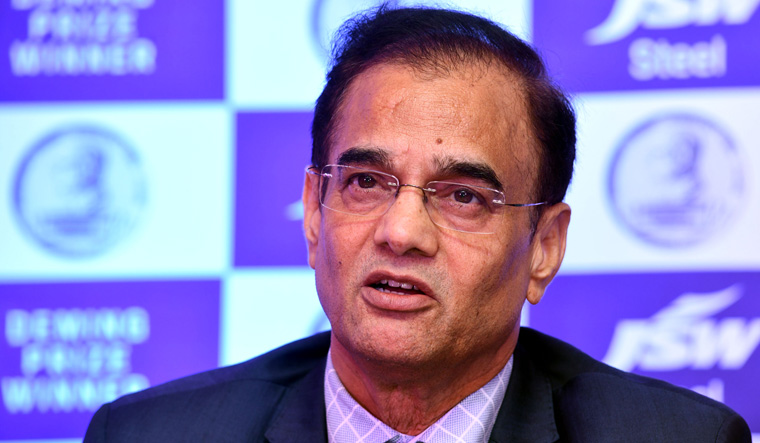Vinod Nowal is the deputy managing director of JSW Steel Limited, which is a part of the diversified $13 billion JSW Group, that has a presence in steel, energy, infrastructure, cement, and sports sectors. JSW Steel is one of the major integrated steel company in India with an installed steel-making capacity of 18 MTPA (Million Tonnes Per Annum). JSW Steel’s plant at Vijayanagar in Karnataka, is the largest single location steel producing facility in India with a capacity of 12 MTPA. Nowal, who has been associated with the group since 1984, had served in various positions in the group in different capacities. He talks to THE WEEK about the challenges faced by the steel sector in India, about domestic steel consumption and about JSW Steel’s Vijayanagar Works unit in Karnataka being awarded the highest global quality honour, the Deming Prize, for its Total Quality Management (TQM) practices.
What are the challenges faced by the steel sector in India?
I feel that India has huge iron ore resources and it can fulfill the requirements of all the steel plants without depending on imports. However, our government needs to take proactive steps to simplify mining procedures so that this iron ore can be utlised efficiently for steel production in the country. If you look at it broadly, India is self sufficient in iron ore resources but proper mining legislation is required to channelise this resource. Besides this, there needs to be proper connect with the mining companies and the steel manufacturers so that the domestic iron ore resources are utlilised properly. Besides, the huge cost of transportation of iron ore from the mines to the steel plants in India is a major challenge as the cost is one of the highest in the world. Due to this, our country's iron ore resources are not being fully utilised.
Has there been an increase in the per capita steel consumption in India? How does it fare when compared to other countries?
India fares very low in per capita steel consumption when compared to many other countries. It is currently 68kg when compared to a per capita global average steel consumption of 250kg. In India, more infrastructure development has to take place to increase the per capita steel consumption. Compared to this, China has seen robust growth in its infrastructure development that requires huge amount of steel. China consumes almost 50 per cent of the world's steel. Steel is very vital for the country's infrastructure development and is around 1-1.5 per cent of the country's total GDP. I feel that steel consumption in India will only grow with the times to come.
Recently, your Vijayanagar plant in Karnataka was awarded the Deming Prize. How significant is this award for your company?
The Deming Prize is one of the highest awards on TQM (Total Quality Management) in the world. It was established in 1951 to honour Dr. William Edwards Deming who contributed greatly to Japan’s proliferation of statistical quality control after World War II. His teachings helped Japan build its foundation by which the level of Japan’s product quality has been recognized as the highest in the world. Although Tata Steel has already been awarded this in India earlier, winning this is truly significant for us as it exhibits the highest quality standards. The selection process is very stringent and there is a committee which looks into each and every part of our practice and then decides on this. Besides our Vijayanagar plant in Karnataka, we now intend to implement TQM across all our steel manufacturing units. TQM implementation at our plant in Salem in Tamilnadu is on track and its implementation at Dolvi Works in Maharashtra is expected to be completed by 2020.
What about your company's expansion plans in terms of production capacity?
In India, we have steel plants in seven locations. We also have steel plants at foreign locations too, with two in the United States and one in Italy. In India, our aim is to reach a production capacity of around 40-45 MTPA by 2030. Currently, we have around 19 MTPA, which is the combined capacity from all our plants in India. With current investments we aim to reach 24 MTPA by 2020 from our Indian operations. At the same time, we have a global presence and are present in around 100 countries.



